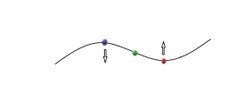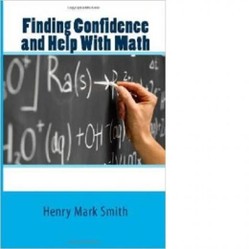The derivative in calculus is an important concept. It provides a rate of change of a function, not over long periods, but at an instance. The simple way of stating this is the derivative of a function is the slope of the tangent line to the function at a point. For most functions the derivative function is a known form, and we can use a table to find the derivative function which is usually simply called the derivative.
There are several notations for the derivative in common use. Here we will use df(x)/dx.
A simple example is to think of a company with sales (in thousands of units) per year given be f(x) = x4, where x is the number of years. How are sales projected to be changing at the end of year 2?
The derivative of f(x) = xn , df(x)/dx is nxn-1, so dx4/dx = 4x3. This means the function f(x) = x4 has a tangent line with a slope of 4x3 after x years. So the rate of change of sales after two years is df(2)/dx = 4(2)3 or 32, meaning sales are projected to be increasing at a rate of thirty-two thousand units per year.
From the above example it is obvious the derivative has many everyday uses, and because of this the derivative is extremely valuable. Another use is velocity is the rat, which is the of change of the displacement, and acceleration is the rate of change of velocity.








 Multivariable Calculus: Gradient, Divergence, and Curlon 12/19/2025
Multivariable Calculus: Gradient, Divergence, and Curlon 12/19/2025
 UAPs, Formerly UFOs, If They Are Real How Can We Explain Their Arrival to Earth?on 12/18/2025
UAPs, Formerly UFOs, If They Are Real How Can We Explain Their Arrival to Earth?on 12/18/2025
 Polar Coordinate Systemon 12/16/2025
Polar Coordinate Systemon 12/16/2025
 Aurora Can Disrupt Electrical Devices And Even the Grid?on 12/15/2025
Aurora Can Disrupt Electrical Devices And Even the Grid?on 12/15/2025



Comments
It depends on the high school. In this state one needs 12 college hours in a subject to be allowed to teach it, provided one has the other requirements. Some schools teach calculus and college level algebra, and more, but many high school teachers do not have the background to teach advanced math. The 12 hours can, and often do, include courses that did not count for math majors. In high school I had, albeit a long time ago, two algebra courses, one trig and one geometry course. The algebra was not at the level of college algebra.
So fewer people write at calculus and other college level courses.
Thank you for your comments below, in answer to my previous observations and questions.
Your answer seven comment boxes down advises us that "I started in calculus because there are so many videos on YouTube by high school teachers in lower math, but I am adding an article in algebra today."
What subjects are taught by high-school teachers of "lower math"?
That was standard, and still is, at the university I attended. Now more students take a four course sequence, 3, 3, 4, and 3 hours, splitting the same work into four parts. The university found 5 hour calculus courses were too intense for many.
We had algebra, geometry, trig, then another algebra.
The computer crashed before I commenced another component of my comment-question below.
Your comment two boxes down describes three calculus courses completed during your college years.
Did your not doing high-school calculus demand your so doing that number, that type as college coursework?
Thank you for your comment below in answer to my previous observation and question.
Your answer 4 comment boxes down advises us that in "high school I did not get calculus."
Did your school, unlike mine, not have any calculus course (so much fun going around with a slide rule!) or did you opt not to take an available, extant course?
In college I had three calculus courses, 2 for 5 credit hours each and one for 3 semester hours.
Many advanced college courses are theoretical, meaning if one is good in geometry one should be good in advanced math since the skill set of proving things is similar.
In college I had three calculus courses, 2 for 5 credit hours each and one for 3 semester hours.
Many advanced college courses are theoretical, meaning if one is good in geometry one should be good in advanced math since the skill set of proving things is similar.
Thank you for your comment below in answer to my previous observation and question.
My math courses all are from junior high school and senior high school. Geometry counted as my least favorite math class even as I found everything before and everything after it equally fascinating, practical and revelatory.
Would a Master of Science in mathematics therefore preclude having to take a course entirely devoted to calculus?
(It would be fascinating and useful to have such a degree that works algebra, geometry, trigonometry, algebra IV and calculus into a unified whole!)
I high school I did not get calculus. However, having a Master of Science in mathematics more than filled in my calculus, but it was in physics, my other field in which I have two degrees, a BS and a MS in applied physics that I really learned the value of calculus and the techniques became clearer. I started in calculus because there are so many videos on YouTube by high school teachers in lower math, but I am adding an article in algebra today. I probably go a little deeper than many others.